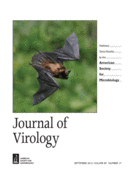- Submit a Protocol
- Receive Our Alerts
- Log in
- /
- Sign up
- My Bio Page
- Edit My Profile
- Change Password
- Log Out
- EN
- EN - English
- CN - 中文
- Protocols
- Articles and Issues
- For Authors
- About
- Become a Reviewer
- EN - English
- CN - 中文
- Home
- Protocols
- Articles and Issues
- For Authors
- About
- Become a Reviewer
Zonal Sedimentation Analysis on Sucrose Gradients
Published: Vol 4, Iss 8, Apr 20, 2014 DOI: 10.21769/BioProtoc.1100 Views: 10225
Reviewed by: Anonymous reviewer(s)

Protocol Collections
Comprehensive collections of detailed, peer-reviewed protocols focusing on specific topics
Related protocols

Aggregation Prevention Assay for Chaperone Activity of Proteins Using Spectroflurometry
Manish Bhuwan [...] Seyed E. Hasnain
Jan 20, 2017 12684 Views

Snapshots of the Signaling Complex DesK:DesR in Different Functional States Using Rational Mutagenesis and X-ray Crystallography
Juan Andres Imelio [...] Alejandro Buschiazzo
Aug 20, 2017 8214 Views

Use of the Fluorescent Dye Thioflavin T to Track Amyloid Structures in the Pathogenic Yeast Candida albicans
Thierry Mourer [...] Sophie Bachellier-Bassi
Feb 5, 2024 2340 Views
Abstract
Zonal sedimentation analysis on sucrose gradients allows estimation of the molecular size of an individual protein or a protein complex by centrifugation at a constant speed under nondenaturing conditions. This method is particularly suitable for globular proteins like the influenza A virus (IAV) protein hemagglutinin (HA). Here, I describe step by step a protocol used to evaluate the oligomeric state of recombinant HA trimers (Magadan et al., 2013).
Materials and Reagents
- Trimerized recombinant HA (recHA3) derived from influenza A/Puerto Rico/8/34 (PR8) virus (Magadan et al., 2013)
- Gel filtration protein standards [carbonic anhydrase (29 kDa), ovalbumin (43 kDa), conalbumin (75 kDa), aldolase (158 kDa), and ferritin (440 kDa)] (GE, catalog numbers: 28-4038-41 and 28-4038-42 )
- 4x NuPAGE LDS sample buffer (Life Technologies, catalog number: NP0007 )
- NuPAGE Novex 4-12% Bis-Tris protein gels (Life Technologies, catalog number: NP0321PK2 )
- NuPAGE MES SDS running buffer (Life Technologies, catalog number: NP000202 )
- Ponceau S solution (Sigma-Aldrich, catalog number: P7170 )
- 5% acetic acid
- Blotting grade blocker nonfat dry milk (Bio-Rad Laboratories, catalog number: 170-6404XTU )
- 1x PBS (Life Technologies, catalog number: AM9624 )
- Tween-20 (Sigma-Aldrich, catalog number: P1379 )
- A home-made, conformation-independent mouse monoclonal antibody to denatured HA1 (clone CM-1)
- A rabbit polyclonal anti-mouse HRP-conjugated antibody (Dako, catalog number: P0260 )
- SuperSignal West Pico Chemiluminescent Substrate (Thermo Fisher Scientific, catalog number: 34077 )
- High purity sucrose (Thermo Fisher Scientific, catalog number: NC0110097 )
- UltraPure 5 M NaCl (Life Technologies, catalog number: 24740-011 )
- UltraPure 0.5 M EDTA (pH 8.0) (Life Technologies, catalog number: 15575-020 )
- Sucrose gradient (see Recipes)
Equipment
- Refractometer (Bausch & Lomb Incorporated)
- 14 x 89 mm Ultra Clear tubes (Beckman Coulter, catalog number: 344059 )
- Pipettor
- 1.5 ml micro-centrifuge tubes
- An ultracentrifuge equipped with a SW41 rotor (Beckman Coulter)
- Nitrocellulose blotting membranes (0.45 µm pore size) (Life Technologies, catalog number: LC2000 )
- A chamber to run mini-gels [I routinely use the XCell SureLock Mini Cell electrophoresis system (Life Technologies, catalog number: EI0001 ).]
- A Mini Trans-Blot Cell (Bio-Rad Laboratories, catalog number: 170-3930 )
- Carestream Kodak BioMax XAR films (Sigma-Aldrich, catalog number: F5388 )
- Kodak X-OMAT 2000A processor or equivalent
- A cassette for autoradiography
Software
- ImageJ software (http://imagej.nih.gov/ij/)
Procedure
- Zonal sedimentation on a sucrose gradient
- Simultaneously load 6 µg of recHA3 and 60 µg of each protein standard by pipetting them (use a 10 µl tip connected to a pipettor) just below the top of a 5-25% sucrose gradient containing a 60% sucrose cushion.
- Ultracentrifuge the sucrose gradient for 16 h at 35,000 rpm, 4 °C.
- Place the tube containing the sucrose gradient in a tightly fitted rack to avoid any undesired movement.
- Carefully place a 1 ml tip connected to a pipettor just below the top of the sucrose gradient.
- Manually collect fractions of 250 µl by slow pipetting.
- Transfer fractions to new 1.5 ml micro-centrifuge tubes.
- Repeat steps A4 and A6 until the sucrose gradient is completely fractionated.
- Combine 15 µl of each fraction with 5 µl of 4x LDS sample buffer.
- Boil samples for 5 min.
- Simultaneously load 6 µg of recHA3 and 60 µg of each protein standard by pipetting them (use a 10 µl tip connected to a pipettor) just below the top of a 5-25% sucrose gradient containing a 60% sucrose cushion.
- SDS-PAGE and Western blotting
- Load 15 µl of every sample onto protein mini-gels.
- Run for ~1 h at constant 50 mA/gel.
- Transfer proteins to nitrocellulose membranes for ~1 h at constant 300 mA.
- Stain membranes with 10 ml 0.1% Ponceau S solution in 5% acetic acid for 5 min. Rinse membranes with water. At this point, it is possible to see the protein standards on the stained membranes.
- Scan or take a picture of the stained membranes.
- Block membranes with 10 ml 5% nonfat milk/1x PBS for 30 min at room temperature.
- Wash membranes with 10 ml 0.5% Tween-20/1x PBS for 10 min at room temperature with vigorous shaking.
- Incubate membranes with 10 ml neat mouse hybridoma supernatant containing the anti-HA antibody for at least 2 h at room temperature with slow rocking.
- Wash membranes 3 times with 10 ml 0.5% Tween-20/1x PBS for 10 min at room temperature with vigorous shaking.
- Incubate membranes with 10 ml anti-mouse HRP-conjugated antibody diluted 1:3,000 in 5% nonfat milk/1x PBS for 1 h at room temperature with slow rocking.
- Wash membranes 3 times with 10 ml 0.5% Tween-20/1x PBS for 10 min at room temperature with vigorous shaking.
- Incubate membranes with 5 ml SuperSignal West Pico chemiluminescent substrate for 5 min at room temperature with slow rocking.
- Expose films to membranes at room temperature.
- Develop films using a Kodak X-OMAT 2000A processor or equivalent.
- Please refer to Figure 5 on our prior publication (Magadan et al., 2013) for representative results and conclusions.
- Load 15 µl of every sample onto protein mini-gels.
- Calculation of the recHA3 molecular size
- Measure the intensity of each protein standard band on stained membranes with Ponceau S using the Image J software. Then, plot the distribution of the protein standards on the different sucrose gradient fractions.
- Repeat step C1 measuring the distribution of recHA3 obtained by Western blotting.
- By comparing both plots, it is evident that recHA3 (~200 kDa) sediments as discrete peaks immediately following the fractions containing aldolase (158 kDa).
- Measure the intensity of each protein standard band on stained membranes with Ponceau S using the Image J software. Then, plot the distribution of the protein standards on the different sucrose gradient fractions.
Recipes
- Sucrose gradient
Prepare a 60% sucrose stock by dissolving high purity sucrose in 50 mM Tris-HCl (pH 7.5) and 100 mM NaCl
Measure the refractive index (RI) of the 60% sucrose solution using a refractometer (RI=1.4418 at room temperature)
Make 25%, 22.5%, 20%, 17.5%, 15%, 12.5%, 10%, 7.5%, and 5% sucrose solutions using the 60% sucrose stock solution described above in this recipe
Pour a 2 ml 60% sucrose cushion in a 14 x 89 mm tube and then 1 ml of the following sucrose solutions by careful pipetting: 25%, 22.5%, 20%, 17.5%, 15%, 12.5%, 10%, 7.5%, and 5%
Equilibrate the sucrose gradient for at least 1 h at room temperature
Acknowledgments
This protocol has been adapted from a previously published paper (Magadan et al., 2013). This work was supported by the Division of Intramural Research of the National Institute of Allergy and Infectious Diseases, National Institutes of Health.
References
- Magadan, J. G., Khurana, S., Das, S. R., Frank, G. M., Stevens, J., Golding, H., Bennink, J. R. and Yewdell, J. W. (2013). Influenza A virus hemagglutinin trimerization completes monomer folding and antigenicity. J Virol 87(17): 9742-9753.
Article Information
Copyright
© 2014 The Authors; exclusive licensee Bio-protocol LLC.
How to cite
Magadán, J. G. (2014). Zonal Sedimentation Analysis on Sucrose Gradients. Bio-protocol 4(8): e1100. DOI: 10.21769/BioProtoc.1100.
Category
Microbiology > Microbial biochemistry > Protein > Structure
Biochemistry > Protein > Structure
Biochemistry > Protein > Electrophoresis
Do you have any questions about this protocol?
Post your question to gather feedback from the community. We will also invite the authors of this article to respond.
Share
Bluesky
X
Copy link










